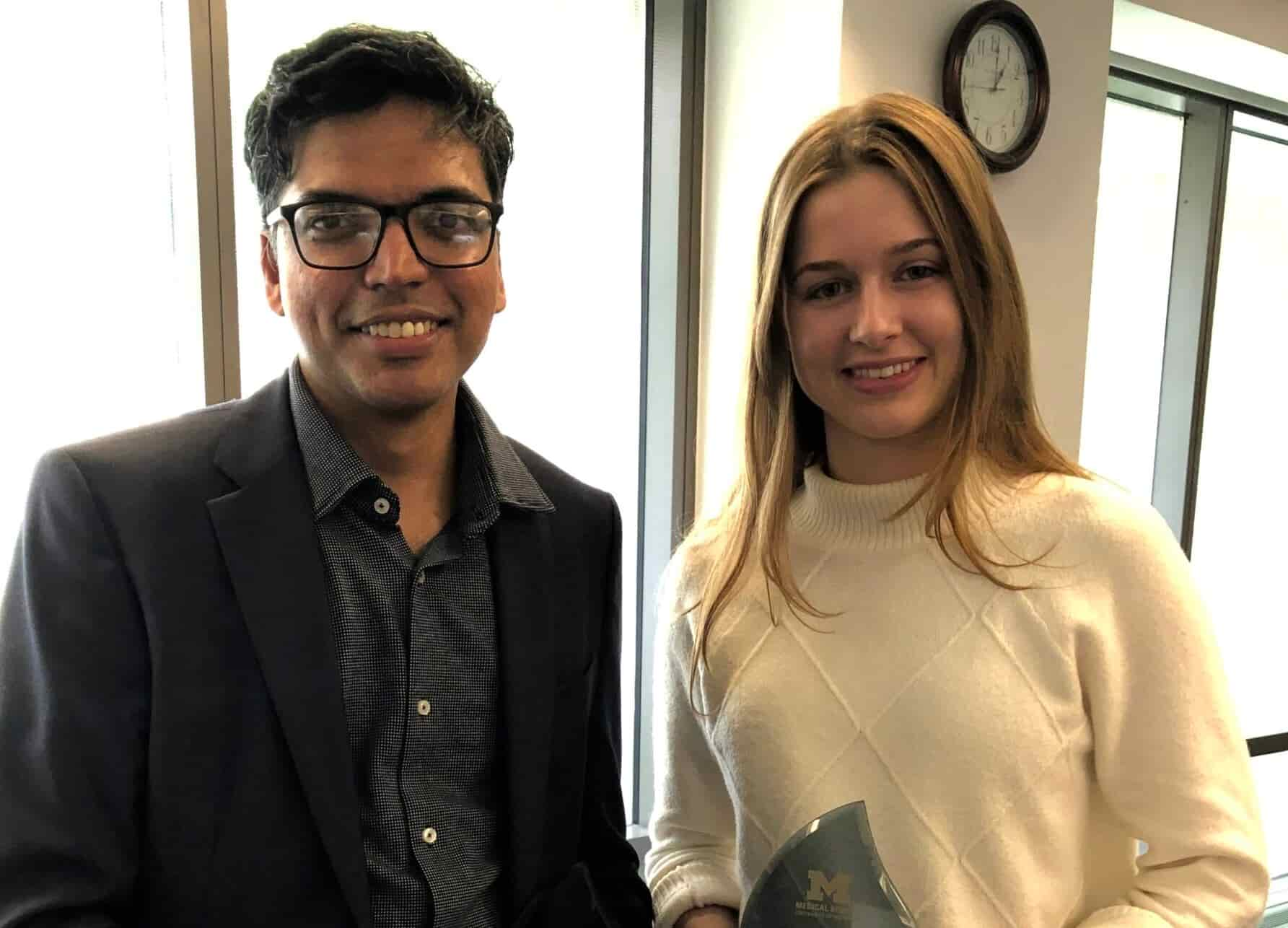Sriram Chandrasekaran, Assistant Professor, U-M Biomedical Engineering, is a 2023 recipient of the (EBS) Endowment for the Basic Sciences 2023 Teaching Award, representing U-M Biomedical Engineering. Chandrasekaran was acknowledged for his instruction in the Artificial Intelligence in Biomedical Engineering course, which has been taught since 2020 (BME 499/487).
“This course is open to both graduates and undergraduate students,” he said. ‘We focus on practical applications of AI in Biomedicine, with hands-on programming tutorials. This course provides an overview of a wide range of AI tools, biomedical data sets (imaging, omics, health records) and diseases (cancer, cardiovascular-, infectious- and brain diseases). It has attracted a diverse pool of students, and course evaluations have been excellent.”
Congratulations also to Mackenzie Moore, who received the EBS Research Staff Award. Moore manages multiple, complex projects in Prof. Tim Bruns’ research group. Throughout her time in his laboratory, Moore has exceeded his expectations.
As Prof. Bruns writes, “Mackenzie has maintained her positive, can-do attitude” and is an “exemplary representative of Biomedical Engineering and the University of Michigan.”
The EBS is a cooperative program developed by former Medical School Dean, Allen Lichter, and the Chairs and Directors of the participating units. Together, they work for the advancement of research and teaching in the Medical School Basic Sciences through the development of new research initiatives and recruitment of new faculty.
Chandrasekaran also received the 2022 EBS Accelerator Award last year to serve as a catalyst for his research activities and in recognition for his many contributions to U-M Biomedical Engineering, especially in the area of antibiotic discovery using mechanistic artificial intelligence.
Antibiotic resistant bacteria are considered to be one of the biggest threats to humanity by WHO. Pathogens are becoming progressively drug resistant, yet drug discovery methods have failed to produce new classes of antimicrobials for decades. There is an urgent need to identify effective therapies from existing FDA approved drugs. Using a unique combination of metabolic modeling, multi-omics data and machine learning algorithms, Chandrasekaran’s laboratory will create a new tool for discovering new therapies and also investigate the biochemical principles that govern drug mechanisms of action. His approach will significantly reduce the time and cost of drug development. There are currently no theoretical models that can integrate biochemical, molecular, metabolic and drug toxicity data to guide drug design. His study is necessary to address an important void in drug discovery.
